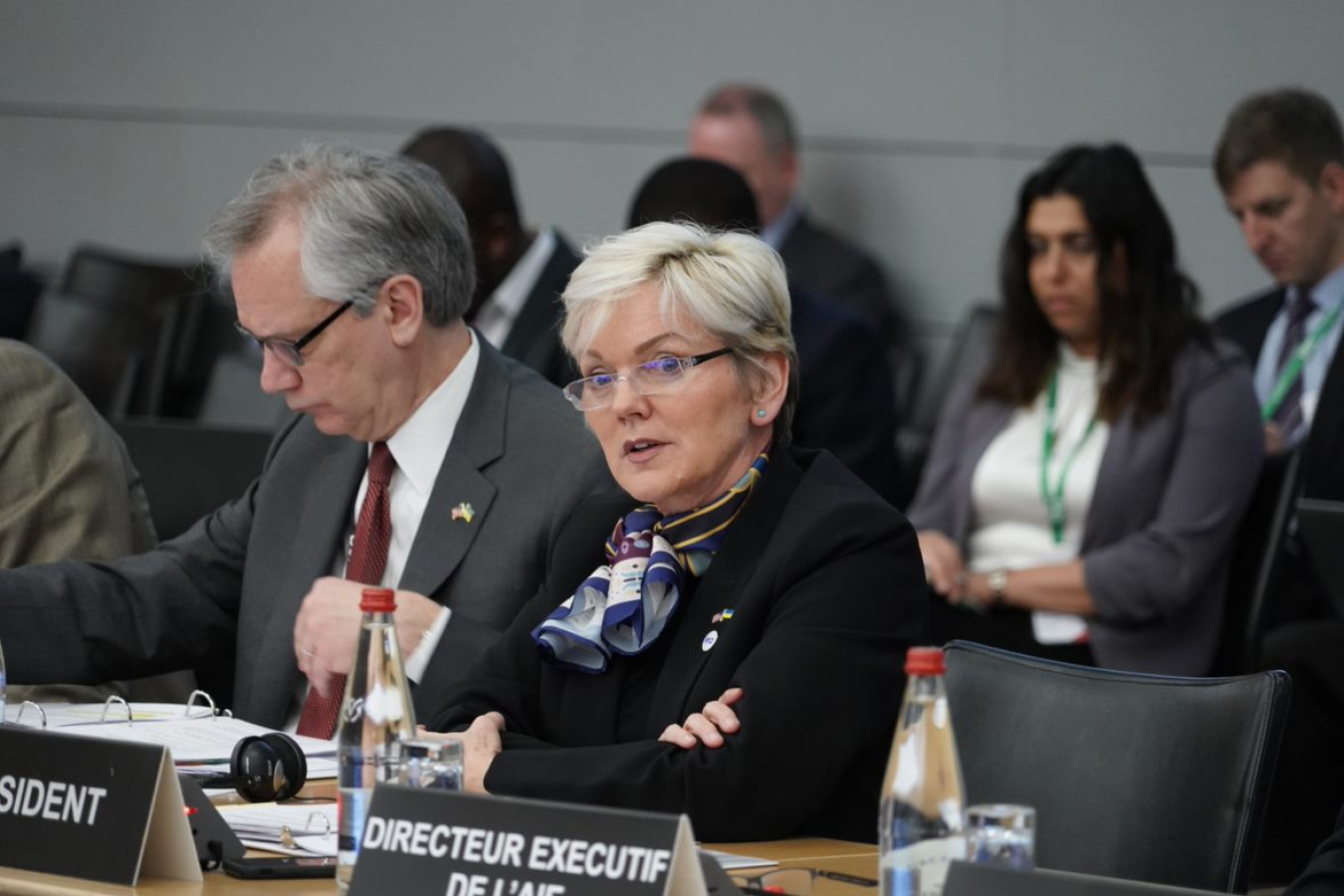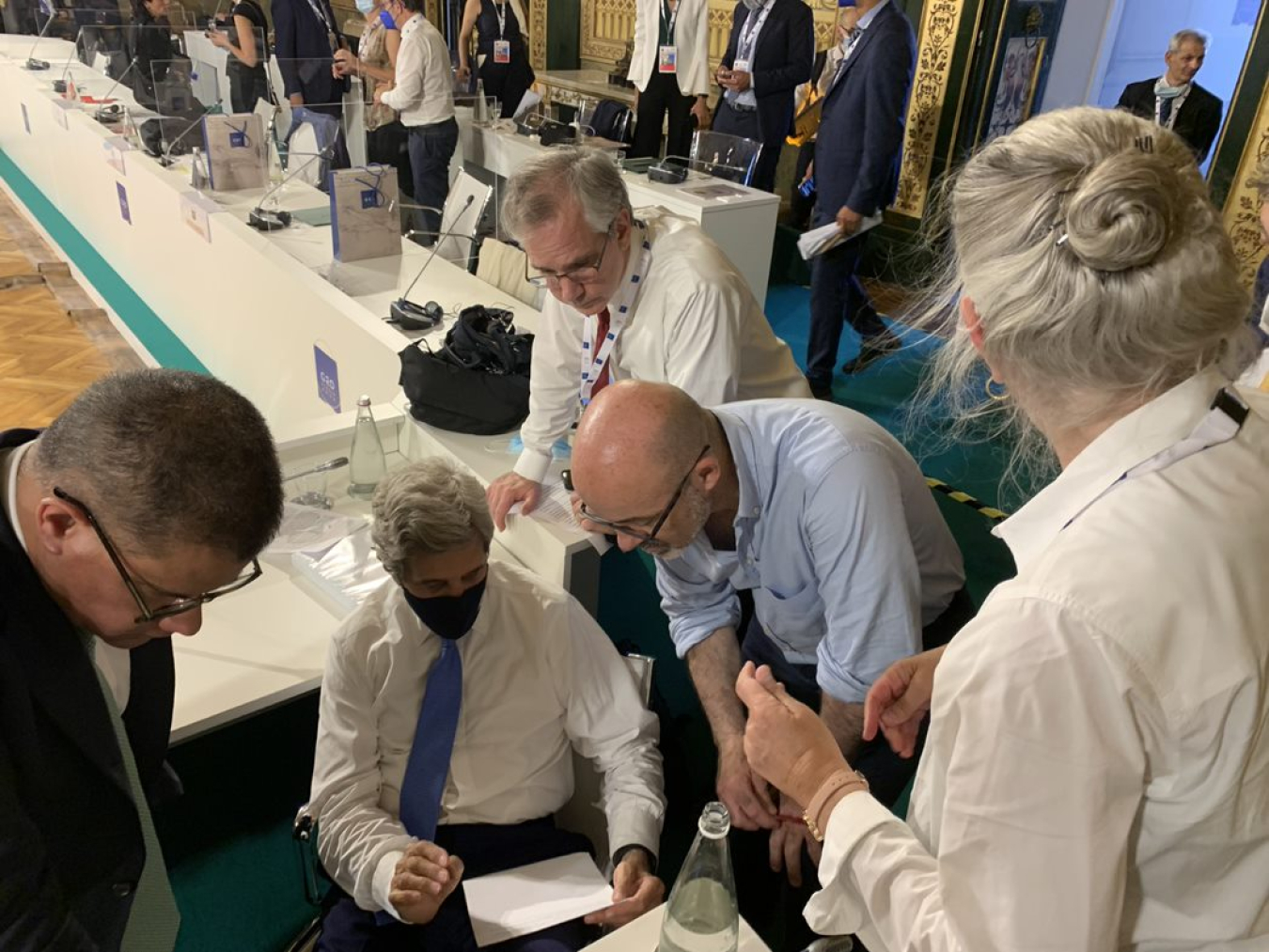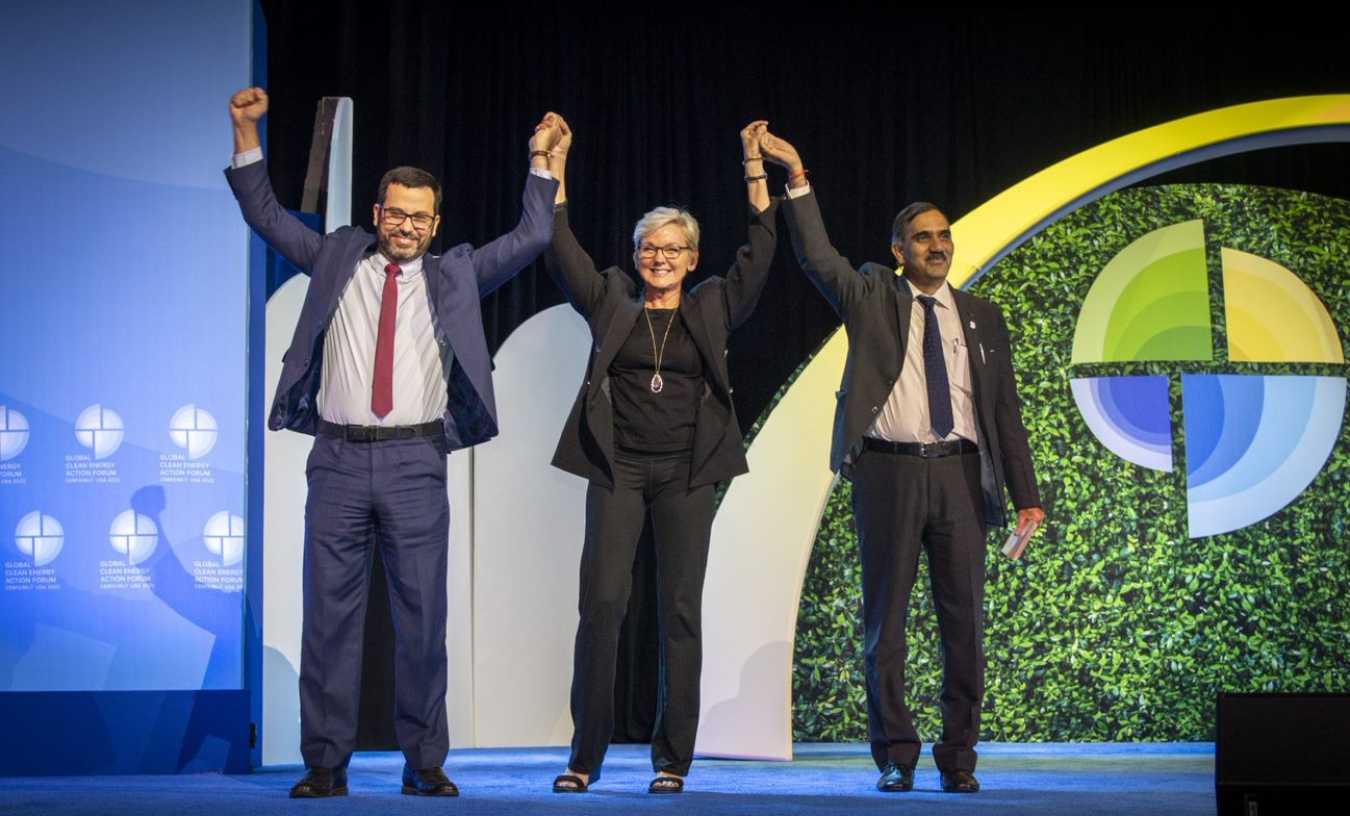What We Do
The Office of Multilateral Engagement leads the Department’s participation in international fora. The Office leverages global international organizations focused on climate and clean energy deployment, such as the G7, G20, the International Energy Agency, Mission Innovation, the Clean Energy Ministerial, and others, to amplify U.S. policy positions. The Office also develops and implements multilateral climate and clean energy initiatives, partnerships, and relationships. This work supports the Department’s mission to ensure America’s security and prosperity by addressing energy, environmental, and nuclear challenges.

Initiatives
International Energy Agency (IEA)
The International Energy Agency (IEA) is the premier intergovernmental organization focused on energy, with a dual mandate on energy security and clean energy transitions, global influence, and strong convening power. The IEA provides authoritative analysis, data, policy recommendations, and real-world solutions to help countries provide secure and sustainable energy for all. It covers a full spectrum of energy systems and energy market issues including energy supply and demand, energy efficiency, clean energy technology innovation and deployment, energy access, demand-side management, critical minerals, supply chains, people-centered energy transitions, and more. The IEA Family, including its members, association countries, and candidate countries for IEA membership, extends across nearly 50 advanced, emerging, and developing economies. The Office represents the U.S. alongside the State Department at the IEA’s Governing Board and numerous other IEA committees and collaborative bodies to advance our energy security through the clean energy transition.
International Renewable Energy Agency
The International Renewable Energy Agency (IRENA) is a leading global intergovernmental agency for energy transformation that serves as a platform for international cooperation, supports countries in their energy transitions, and provides state of the art data and analyses on technology, innovation, policy, finance and investment. IRENA drives the widespread adoption and sustainable use of all forms of renewable energy in the pursuit of sustainable development, energy access, and energy security, for economic and social resilience and prosperity and a climate-proof future. The Office helps guide the organization’s technical engagement, participating regularly in Council meetings.

G20
The Group of Twenty (G20) is an intergovernmental organization consisting of major economies, including Argentina, Australia, Brazil, Canada, China, the European Union, France, Germany, Japan, India, Indonesia, Italy, Mexico, Russia, South Africa, Saudi Arabia, South Korea, Turkey, the United Kingdom, and the United States. It is a forum for international economic and financial cooperation, extending into matters of energy security, energy transition, and implementation of sustainable development goals. The Office serves as Head of Delegation for negotiations in the Energy Track, advancing U.S. interests in areas such as the clean energy transition, unabated fossil fuels transition, critical mineral supply chains, and just transitions.
G7
The Group of Seven (G7) is an intergovernmental organization consisting of major economies, including Canada, France, Germany, Italy, Japan, the United Kingdom, and the United States, in addition to participation from the European Union. G7 members share like-minded views regarding democratic principles in advancing the clean energy transition to meet our most urgent climate goals while ensuring no communities are left behind. As of 2020, G7 members account for over half of global net wealth (at over $200 trillion), 30 –43% of global gross domestic product, and 10% of the world's population (770 million people). The Office serves as Head of Delegation for energy-related negotiations, forging a strong consensus among members that forms the basis for clean energy outcomes in other negotiated forums.
Clean Energy Ministerial
Founded by the United States and key country partners in 2010, the Clean Energy Ministerial (CEM) is a high-level global forum to promote policies and programs that advance clean energy technology, to share lessons learned and best practices, and to encourage the transition to a global clean energy economy. Initiatives are based on areas of common interest among participating governments and other stakeholders. The CEM brings together a community of the world’s largest and leading countries, companies and international experts to achieve one mission – accelerate clean energy transitions. The Office leads on CEM governance issues by participating in its Steering Committee and coordinates engagement among the numerous CEM initiatives and campaigns.
Mission Innovation
Launched in 2015 – the same year as the Paris Agreement – Mission Innovation’s (MI) first phase centered around doubling more than 20 countries’ clean energy research budgets in five years. During this period, it also announced eight Innovation Challenges (now referred to as Innovation Communities), aimed at catalyzing global collaboration on clean energy research, development, and demonstration. MI began its second phase in 2021, shifting its focus from research investment to evolving into a minister-led forum of major economies which cooperate on technical innovations through “research Missions,” while raising ambition for public research, development, and demonstration investments and encouraging commercialization through the private sector and stakeholders. Like CEM, the Office also leads on MI’s governance issues by holding a seat on its Steering Committee and advances work under the eight Missions, of which the U.S. co-leads three, including the Zero Emissions Shipping Mission, the Clean Hydrogen Mission, and the Carbon Dioxide Removal Mission.
North Atlantic Treaty Organization
Formed in 1949 with the signing of the Washington Treaty, the North Atlantic Treaty Organization (NATO) is a security alliance of 31 countries from North America and Europe. NATO’s fundamental goal is to safeguard the Allies’ freedom and security by political and military means. NATO’s Energy Planning Group seeks to advance security of alliance energy supply, grid resilience, undersea energy infrastructure, clean energy supply chains, and recruiting civil expertise. The Office advances U.S. energy security and resilience priorities at the Alliance.
United Nations Framework Convention on Climate Change & Conference of the Parties
The United Nations’ stated purposes are to maintain international peace and security, develop friendly relations among nations, achieve international cooperation, and serve as a center for harmonizing the actions of nations. The Office works with the U.S. government and partner countries to achieve the UN's current Sustainable Development Goals (SDGs), particularly SDG 7 which seeks to ensure access to affordable, reliable, sustainable, and modern energy. The Office also demonstrates the latest U.S. clean energy ambitions, technologies, and partnerships at the annual Conference of the Parties (COP) to the UN Framework Convention on Climate Change.

Recent Highlights
- From September 21-23, 2022, U.S. Secretary of Energy Jennifer M. Granholm chaired the Global Clean Energy Action Forum (GCEAF) in Pittsburgh, Pennsylvania, convening thousands of clean energy leaders – government ministers, CEOs, innovators, civil society, young professionals – to build partnerships, launch initiatives, and share lessons to transition to clean energy. The event also convened the 13th Clean Energy Ministerial (CEM) and 7th Mission Innovation Ministerial (MI), two essential international platforms for collaboration on clean energy innovation and deployment, and mobilized over $94 billion in public funding by 2026 for demonstrating clean energy technologies across 16 countries.
- Japan hosted the G7 Ministers’ Meeting on Climate, Energy, and the Environment, April 15-16 in Sapporo, Hokkaido, which culminated with adoption of a consensus ministerial communique. Under the leadership of Energy Secretary Jennifer Granholm, this year’s communique reports on real material progress in multiple sectors and signals the commitment of the U.S. and some of our closest allies on setting higher bars for the world to build a clean energy economy as fast as possible. The communique sends a generally strong message on the G7’s global leadership in achieving net-zero GHG emissions by mid-century and advancing the clean energy transition—while also ensuring global energy security, a key overarching priority for Japan.

